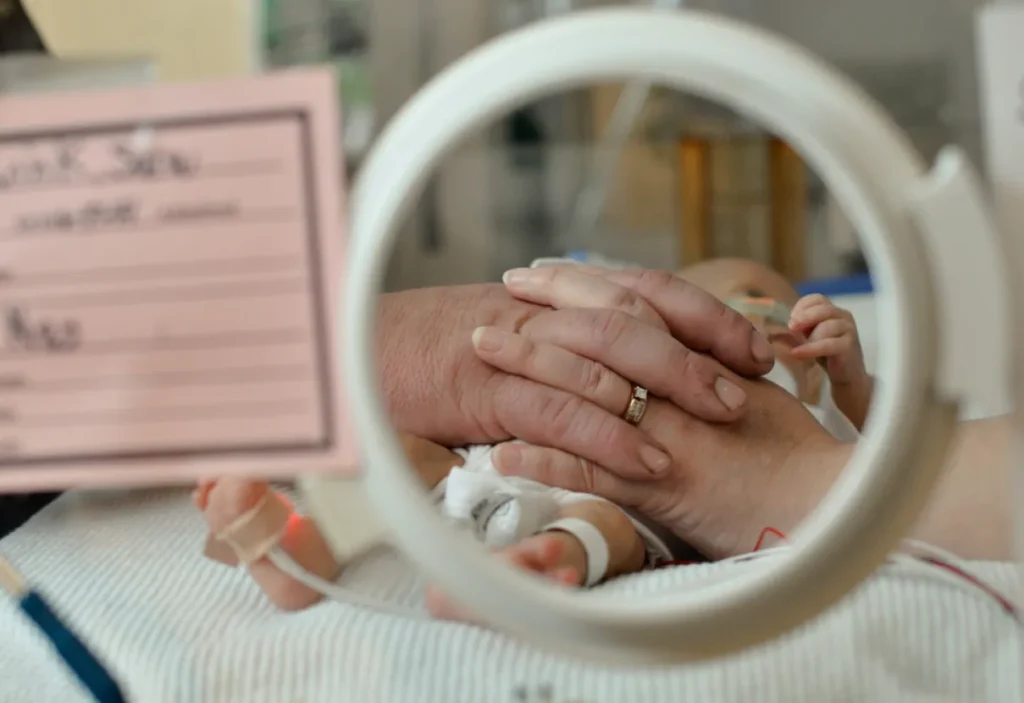
When your baby is in the NICU, every decision can feel overwhelming. You’re navigating medical jargon, unpredictable outcomes, and emotional trauma—often all at once. If your baby has been diagnosed with Necrotizing Enterocolitis (NEC), the fear can be paralyzing. NEC is a dangerous intestinal disease that primarily affects premature infants, and it can lead to severe complications, high medical costs, and even death.
One crucial area many parents don’t initially realize can play a role in their baby’s health is infant nutrition—specifically, the formula used. Emerging studies suggest a link between cow’s milk-based formulas and increased risks of NEC in preterm babies. Parents deserve to know the facts so they can make informed choices.
Cow’s milk-based formula has been a staple in NICUs and homes for decades. Brands like Enfamil and Similac, leading formula manufacturers, are trusted by millions. Increasing evidence has shown that premature infants—especially those under 32 weeks—are more vulnerable to developing NEC when fed cow’s milk-based formula instead of breast milk or human milk-based alternatives.
The problem? Many parents are not informed of this risk. Some hospitals continue to use these products without providing full disclosure. This lack of transparency has sparked growing concerns and, in some cases, legal action against formula manufacturers for failing to warn about the risks.
As a parent, it’s vital to:
Knowledge is power; understanding what’s going into your baby’s body can be lifesaving.
Enfamil (by Mead Johnson) and Similac (by Abbott) are two of the most widely used infant formula brands. Both have faced lawsuits in recent years related to their cow’s milk-based products and their alleged failure to warn parents of the potential NEC risks for premature babies.
Key points to be aware of:
As a parent, being informed about what your hospital is using—and why—can make a critical difference in your child’s outcome. If you’re not comfortable, speak up. Ask about alternatives, the hospital’s policies, and your rights.
Infant formulas come in several categories, each designed for different needs. Here’s a simplified breakdown:
When choosing a formula, especially in a NICU setting, it’s essential to ask whether the product is safe for your baby’s gestational age and medical condition.
If you are concerned about the formula your baby is receiving, talk to your neonatologist about alternatives. Some replacements may include:
While availability may vary by hospital, many parents have successfully advocated for donor or human milk-based alternatives after learning about the NEC risks.
For families unable to provide breast milk due to medical or supply reasons, donor milk is a viable and often lifesaving option. Breast milk offers protective antibodies and enzymes that help build an infant’s immune and digestive systems—critical for premature babies.
Donor breast milk is:
Ask your hospital or NICU care team if they partner with a milk bank. If they don’t, express your concerns and explore alternatives—many parents have succeeded in pushing for access when initially told it wasn’t available.
The growing body of research connecting formula to NEC has prompted families to seek legal support. Product liability lawsuits argue that manufacturers failed to adequately warn users about known risks.
Legal support may help families:
Many law firms offer free case evaluations and work on a contingency basis, meaning families don’t pay unless a settlement is won. Seeking legal help is not about blame—it’s about protecting future babies and holding companies to ethical standards.
Parents of babies with NEC are already carrying so much—grief, confusion, hope, fear. But one of the most powerful tools at their disposal is information. Knowing the risks, understanding formula ingredients, and speaking up for your baby’s health are all essential steps.
As a community, we must demand that manufacturers and healthcare providers prioritize transparency. Parents should never be left in the dark when a decision could have life-or-death consequences for their child.
Pay attention to the labels. Ask the hard questions. Push for safer, evidence-based options. Because every baby deserves the safest possible start—and every parent deserves the truth.
©2026 NEC Advocacy Group All Rights Reserved
This site is protected by reCAPTCHA and the Google Privacy Policy and Terms of Service apply.